In our series Salary Stories, women with long-term career experience open up about the most intimate details of their jobs: compensation. It’s an honest look at how real people navigate the complicated world of negotiating, raises, promotions and job loss, with the hope it will give young people more insight into how to advocate for themselves — and maybe take a few risks along the way.
Been in the workforce for at least five years and interested in contributing your salary story? Submit your information here.
Age: 28
Location: Chicago
Current industry and job title: Retail industry, employer brand manager
Current salary: $125,000 + up to 20% bonus
Number of years employed since school or university: Six
Starting salary: $16/hour
Biggest salary jump: I’ve had two big jumps: from $45,000 to $68,000 as the result of a job switch, and from $80,000 to $110,000, also from a job switch.
Biggest salary drop: No drops.
Biggest negotiation regret: I wish I had known earlier the power of coming in with an external offer during negotiations. I learned way too late that all of my peers were doing this to get their promotions and salary increases. Nothing gets a company to act faster than being confronted with the possibility of you actually leaving.
Best salary advice: It’s okay to care about how much you make. Starting from when I was a young girl, I was always told to follow my dreams, and I held onto that so hard. I felt that changing my major for the promise of more job stability or leaving my dream company for more money were things to be ashamed of, like I was giving up on myself.
But those actions were the opposite of giving up — I was showing myself that I knew my worth and I wasn’t willing to settle for less. There’s no such thing as a “dream job.” My current job is the best role I’ve ever had but if I had seen the job description on paper when I was just starting in my career, I would not have thought of it as a “dream job.”
When I first graduated, I was obsessed with how things looked on LinkedIn, instead of focusing on what was best for me. Don’t let big-name companies take advantage of you for the sake of saying you work for them.
I knew that if I wanted a social media internship, I’d have to show companies that I knew how to do social media. I spent my personal time creating mock-up Instagram feeds for some of my favourite brands to showcase how I would handle their social media presence if I ran their accounts.
I also spotlighted some of my school projects that I was most proud of and were relevant to the jobs I was applying for. Later on, my boss told me that this portfolio website set my application apart from all the rest and ultimately landed me the interview.
When I received the offer with this Fortune 500 company, I cried tears of joy. This was literally my dream job and my dream company. It was a company I had an extremely strong emotional connection to. I thought I would never leave.
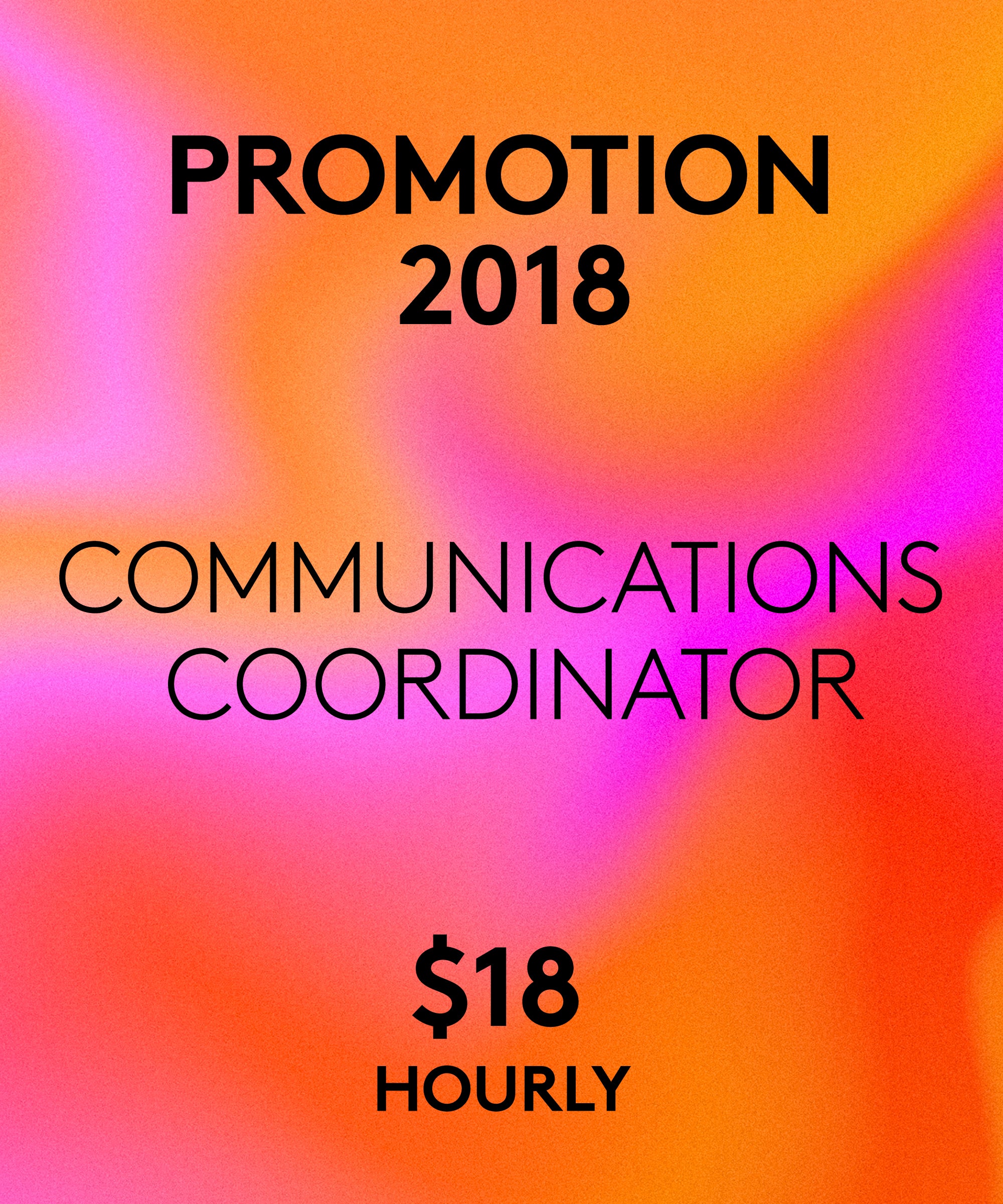
After my six-month internship, I was offered a full-time role. I was so young and excited to receive the offer, I accepted on the spot. Afterwards, when I tried to have a conversation with my manager about potentially starting at a higher salary, she told me I had already verbally accepted and therefore negotiation would not be possible.
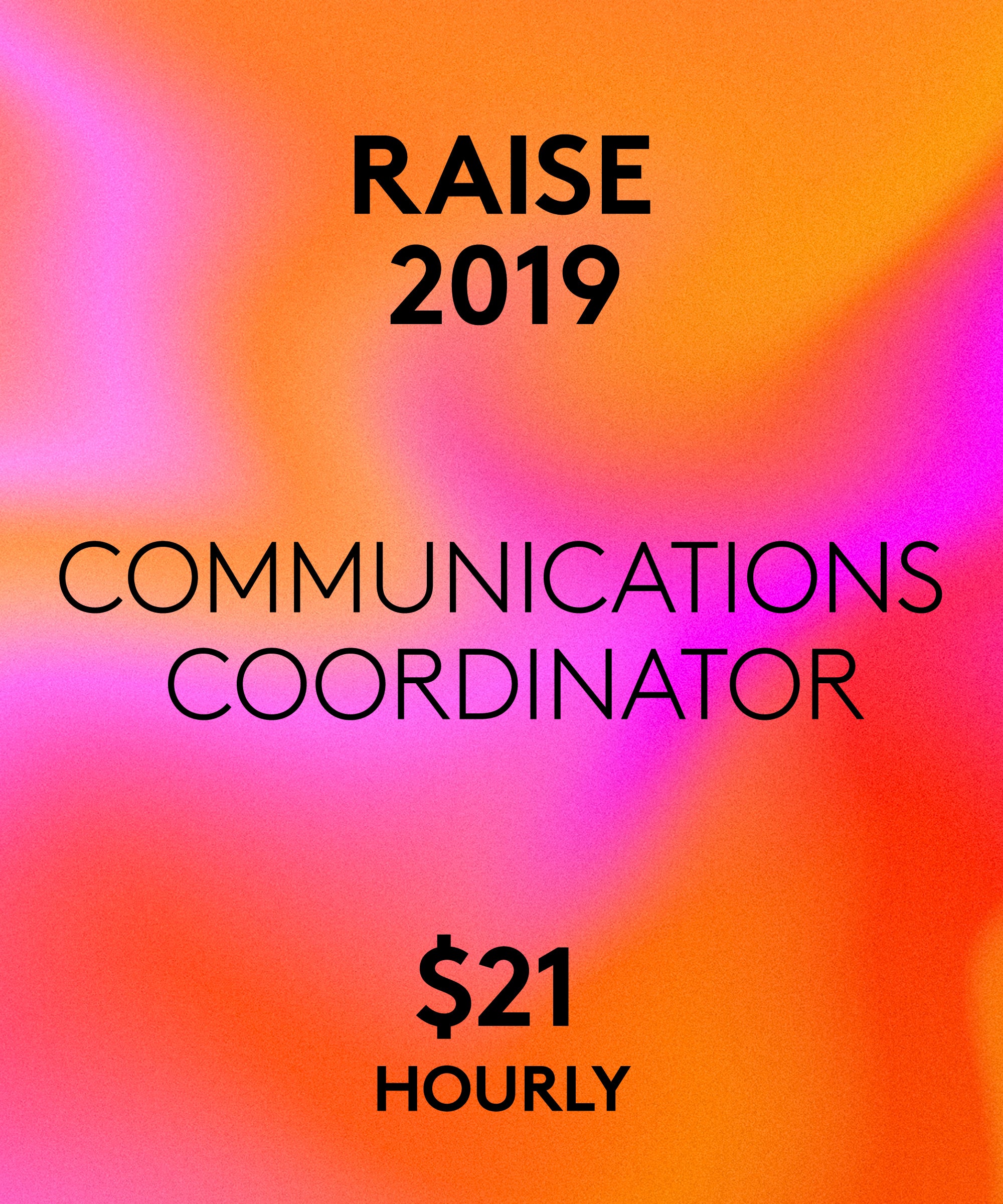
I began asking for a promotion but once the pandemic hit in 2020, I was furloughed for two months, although I was in the first group of employees called back.
By October 2020, companies in general were starting to recover from the pandemic and hiring again. In order to get some leverage in negotiating with this workplace, I applied to a job opening I saw elsewhere, even though I wasn’t very interested in that other company.
I successfully got an external offer for $68,000. But my own company said they wouldn’t go higher than $50,000 to keep me. I was devastated because this was my dream company and I always thought I’d stay here my whole career. But this was the nail in the coffin for me. I knew leaving was the right choice, though it was one of the hardest decisions I ever had to make. I actually cried on my Zoom call with my boss when I told her I was leaving.
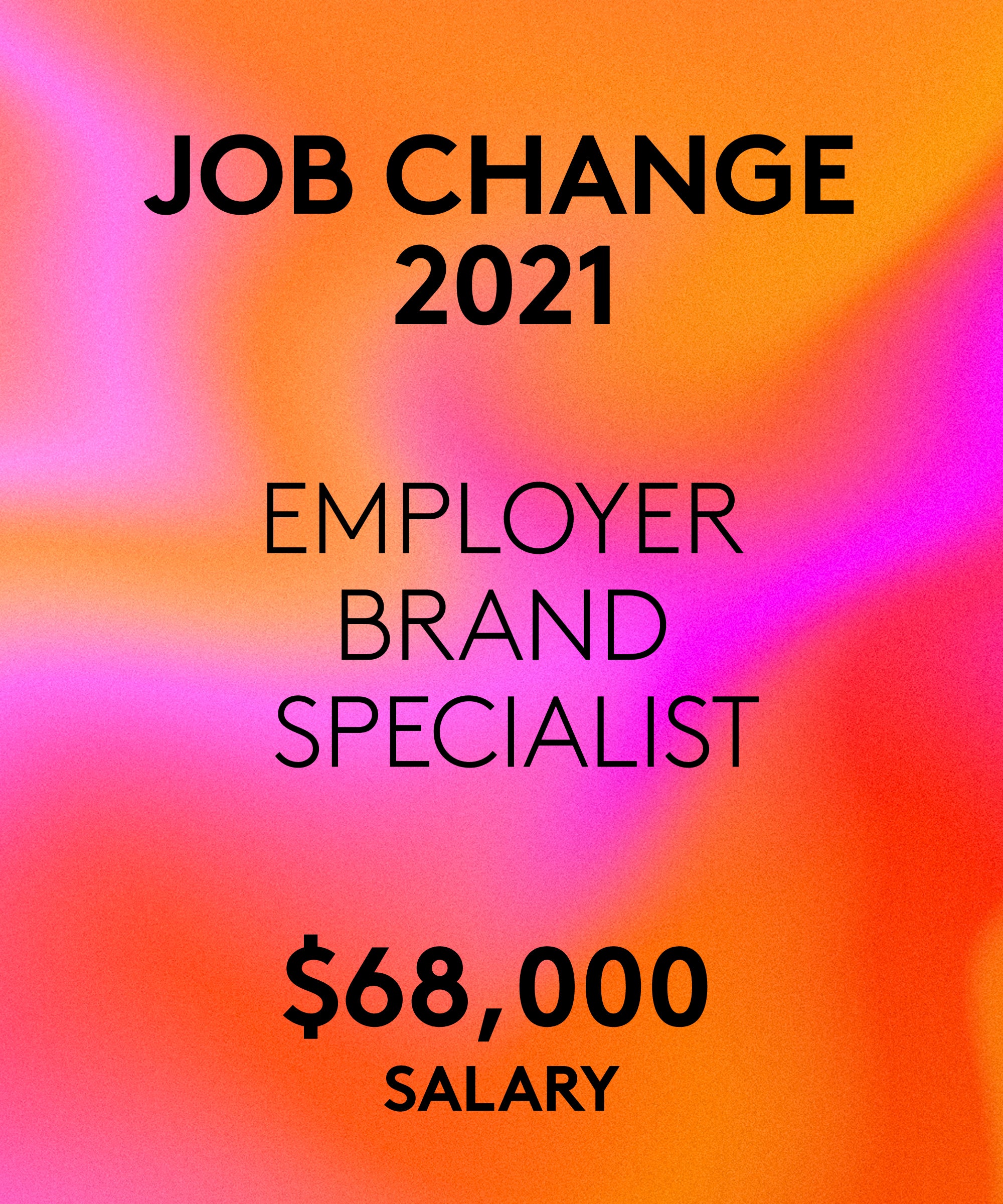
The role of employer branding within an organization is to help position a company as an employer of choice among both internal employees and external candidates. This includes managing a company’s LinkedIn, potential Instagram, careers website, candidate journey communication, and any hiring campaigns.
I went from a team of 50 at my last company to a team of two here. But this gave me so much more independence and freedom to execute on projects quickly and be more agile. I had a lot less red tape and hoops to jump through.
I also got a lot more exposure to leadership. I worked closely with our chief human resources officer and our chief brand officer on a big project to create our new employee value proposition (EVP). This role gave me the resources to bring my vision to life, and confidence in my expertise in the employer branding space.
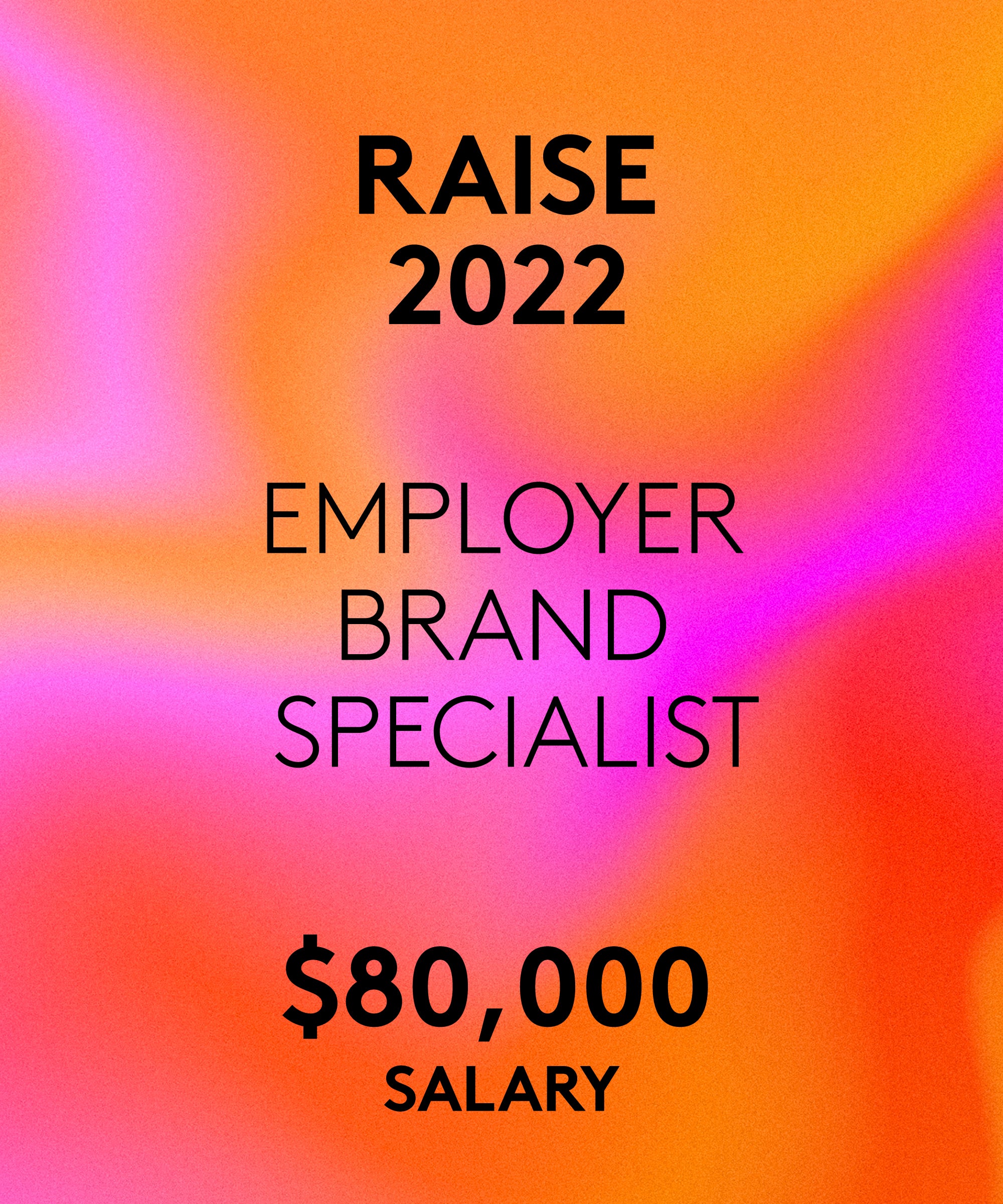
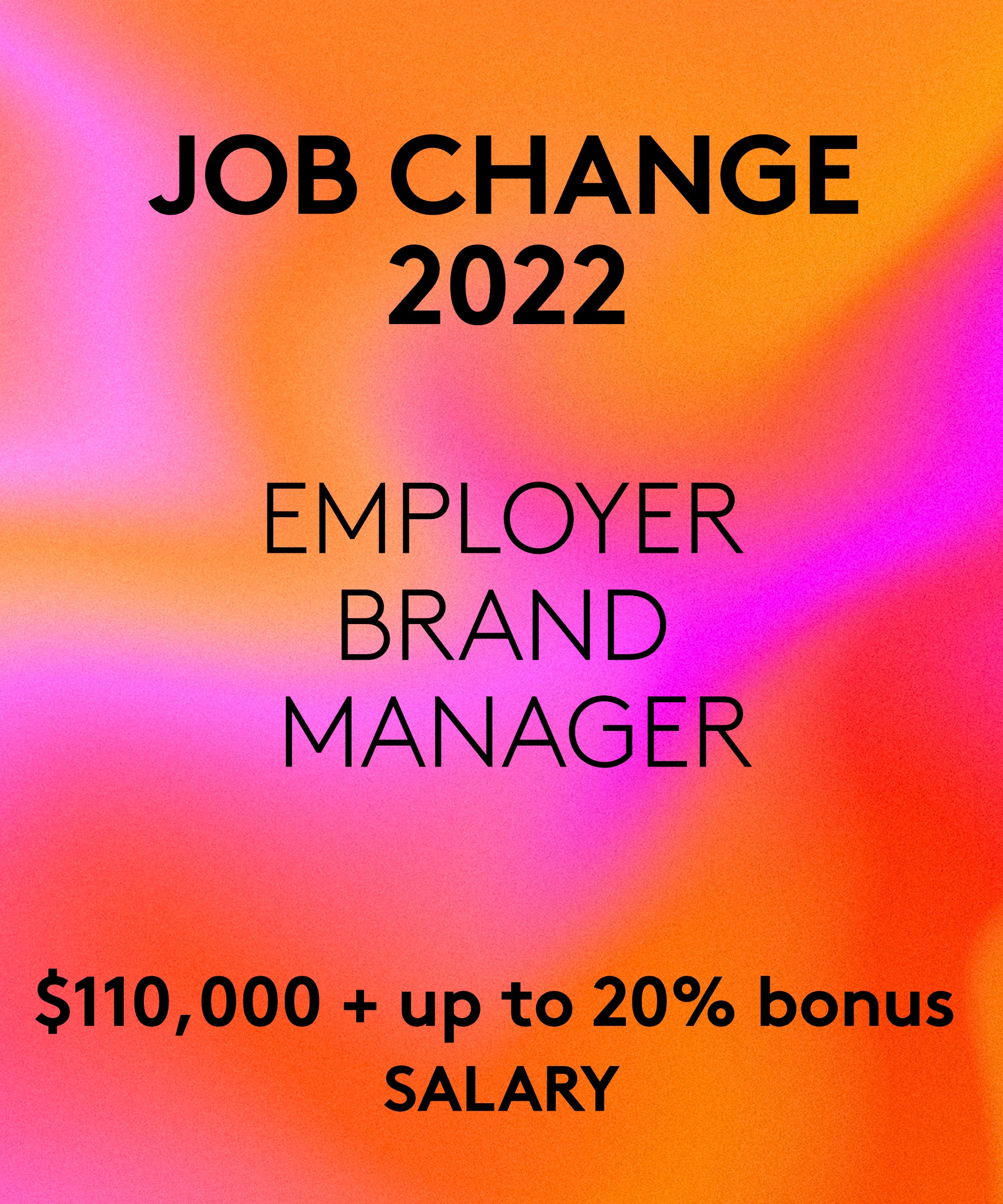
Finally, for leverage in the negotiations, I decided to apply to another company and get an external offer. I received one from this company, which was one that I truly admired. My existing company countered with $120,000 but I had had enough and I chose to leave for this new role.
Among the biggest things that attracted me to this new company were its values and culture. Working in employer branding, what I do is essentially sell the employee experience. One of the things I’ve learned as a marketer is that it’s extremely important to believe in what you’re selling.
I wanted to work for a company that didn’t just talk the talk but actually walked the walk when it came to DE&I, employee benefits and work/life balance. I was very intentional about posing these questions to my interviewers and doing my research before accepting the job.
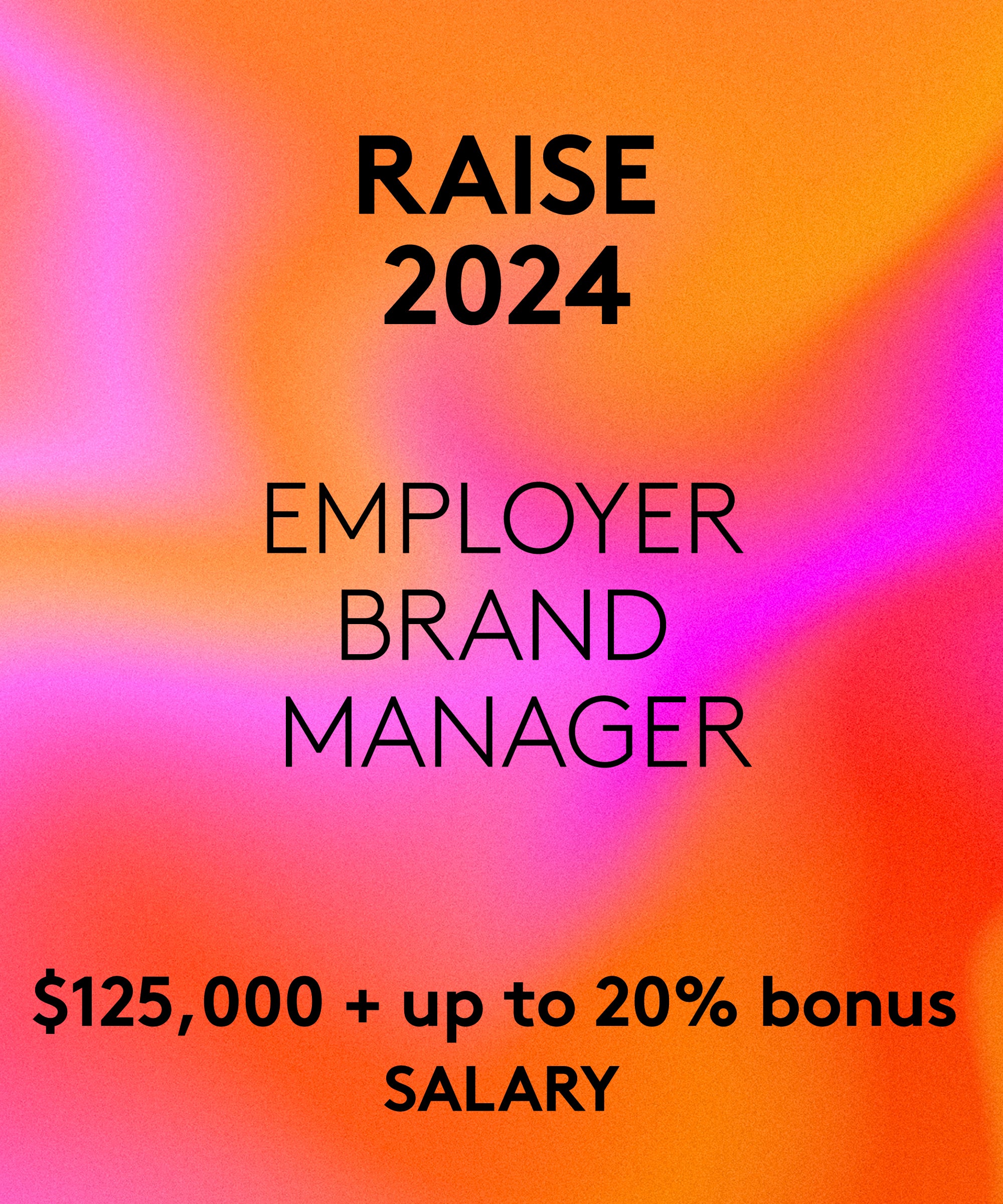
This wasn’t something I was expecting since moving was a personal choice, but my employer supported me nonetheless. I’ve been at this company for two years now and I’ve never been happier.
I’m hoping to receive a promotion to senior manager at the end of this year, based on my performance in the role and the expansion of my scope. I also hope to become a leader and build a team under me. Long term, I’d love to continue to climb the ladder and grow to VP level within a company. I’m excited to continue seeing where my career takes me, and learning more and more along the way.
Like what you see? How about some more R29 goodness, right here?
I Asked For The Top Of The Salary Scale & Got It
I Left A $170,000 Job For A More Fulfilling Career















